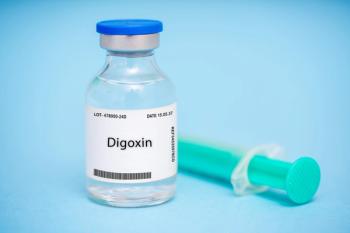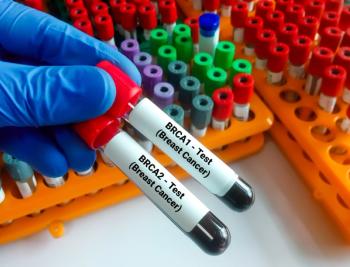
Expert weighs in on data from the AQUILA trial and Johnson & Johnson's approval request for daratumumab for smoldering multiple myeloma.

Expert weighs in on data from the AQUILA trial and Johnson & Johnson's approval request for daratumumab for smoldering multiple myeloma.

Continuous dosing of ribociclib was associated with better tolerability and outcomes.

Digoxen is the active ingredient found in the foxglove plant and is commonly used to treat heart failure.

Children and adults with cancer have differing immune system responses, mutational burdens, and tissue microenvironments.

The overall survival data were immature at the primary analysis of the study.

As lung cancer cases rise, there is a significant need for therapeutic options that meet the challenges and needs of individual patients.

This follows the approval of everolimus tablets for patients aged 1 and older in January 2025.

Isatuximab is a CD38-targeting monoclonal antibody that has demonstrated significant clinical success in improving minimal residual disease rates and progression-free survival.

Endocrine therapy in combination with CDK4/6 inhibitors improves patients’ outcomes, but many still become treatment resistant.

Tucatinib is an oral HER2-targeting tyrosine kinase inhibitor that was approved by the FDA in 2020.

Presence of comorbidities in older patients with breast cancer complicates treatment decisions.

Rates of invasive breast cancer or death were 50% lower with adjuvant trastuzumab emtansine compared with trastuzumab alone.

Endocrine-immune-based therapies yielded favorable objective response rates but had limited impact on pathological complete response.

These data suggest the potential efficacy of immune checkpoint inhibitors with anthracycline-based chemotherapy.

Patients with multiple sclerosis being treated with glatiramer acetate have an increased risk of experiencing anaphylaxis.

The caps on insulin and yearly out-of-pocket drug costs remain unaffected by this decision.

The international cohort study evaluated the safety, efficacy of BCMA-targeting agents ciltacabtagene autoleucel and idecabtagene vicleucel.

KN026 is a humanized bispecific antibody that targets and binds to HER2 proteins on the surface of cancer cells.

Esketamine targets glutamate, the most abundant neurotransmitters in the brain.

As H5N1 bird flu outbreaks impact all 50 states, concerns grow over its spread to humans.

The closure of Baxter’s North Cove facility has significantly impacted existing IV fluid shortages into 2025.

Palbociclib is an oral CDK4/6 inhibitor that was approved by the FDA in 2017.

The report from the Office of Inspector General highlights inconsistencies, lack of transparency, and the need for stronger safeguards.

Data from the CodeBreaK 300 trial supported the FDA's approval.

Hormonal contraceptives did not increase breast cancer risk in patients with BRCA2 mutations.

The combination yields promising results but was associated with high incidence of toxicity and infection.

Studies shows that Red Dye No. 3 was associated with tumor growth in male rats.

Radon is a tasteless, odorless radioactive gas associated with DNA damage and high genomic tumor instability.

The approach favors administration of frequent low-dose chemotherapy to reduce toxicities and optimize outcomes.

Wildfire smoke carries toxic compounds that can trigger respiratory inflammation and cause cellular damage.